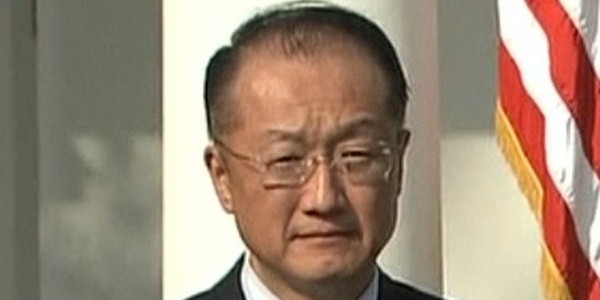The World Bank Group President, Jim Yong Kim, has called on the international community to improve on the global response to tackling the Ebola Virus Disease ravaging some countries in the West African sub-region.
Kim made the call at the opening press briefing of the Annual Meetings of the World Bank and the International Monetary Fund in Washington DC, United States of America.
He said: “Over the past month, the international community has stepped up the global response.
“But there’s no doubt we are still behind the curve and that we have to quickly step up and scale up the global response to this crisis.
“One issue, for instance, is the critical need for more trained health workers in the affected countries.
“The World Health Organisation has just estimated that Liberia alone needs an additional 360 foreign medical staff today to treat those infected.
“We now must reach out to countries around the world to urgently send health workers to the three countries.
“I will be part of that effort.”
Kim said that the current economic impact assessment report had revealed the potential economic damage from the outbreak of the virus in the affected countries.
According to him, if the epidemic is not quickly contained and spreads to neighbouring countries, the two years of regional financial impact will reach $32.6 billion by the end of 2015.
This, the president said, would be catastrophic for the people throughout the West African sub-region.
On Infrastructure development for emerging markets and developing economies, Kim said the various countries would require about $1 trillion in extra investment a year.
He said: “The global infrastructure facility, known as GIF, represents a unique collaboration approach among the private sector, especially institutional investors, donor nations, multinational development and the World Bank group.
“They help to unlock billions of dollars for infrastructure projects in developing and emerging economies.”
Kim said that the challenge to infrastructure development remained lack of bankable projects and insufficient supply of commercially viable and sustainable infrastructure investment.
Commenting on the fight against cholera epidemic in Haiti, the president said it was unfortunate that too many people were still getting sick mainly for lack of clean water and poor sanitation system.
He said: “Cholera remains endemic and water-borne diseases are one of the leading causes of infant mortality in Haiti.
“Expanding coverage of safe water and sanitation is possible.
“We cannot ignore this opportunity to prevent thousands more Haitian children from dying from water-borne diseases.”


